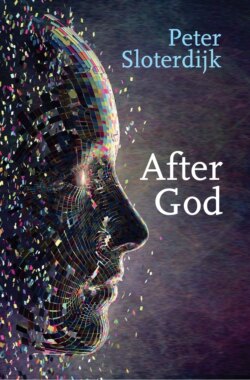Читать книгу After God - Peter Sloterdijk - Страница 11
Notes
Оглавление1 Nous autres, civilisations, nous savons maintenant que nous sommes mortelles. [. . .] Et nous voyons maintenant que l’abîme de l’histoire est assez grand pour tout le monde [“We others, civilizations, we now know that we are mortal. […] And we now see that the abyss of history is big enough for the whole world”]. Paul Valéry, La Crise de l’Esprit (Paris 1919), reedited in Variété I (Paris: Gallimard 1924), now in Œuvres I (Paris: Éditions de la Pléïade), p. 988. 2 See Raffaele Pettazzoni, Der allwissende Gott: Zur Geschichte der Gottesidee (Frankfurt am Main: Fischer Bücherei, 1960). 3 Peter Sloterdijk, God’s Zeal: The Battle of the Three Monotheisms, translated by Wieland Hoban (Cambridge: Polity, 2009), pp. 140–2. 4 Friedrich Nietzsche, “The Case of Wagner,” in Friedrich Nietzsche, The Anti-Christ, Ecce Homo, Twilight of the Idols, and Other Writings, edited by Aaron Ridley, translated by Judith Norman (Cambridge: Cambridge University Press, 2005), here p. 261. 5 See Jan Assmann, Totale Religion: Ursprünge und Formen puritanischer Verschärfung (Vienna: Pincus Verlag, 2016), pp. 58–9. 6 Friedrich Nietzsche, “Twilight of the Idols,” in Friedrich Nietzsche, The Anti-Christ, Ecce Homo, Twilight of the Idols, and Other Writings, edited by Aaron Ridley, translated by Judith Norman (Cambridge: Cambridge University Press, 2005), here p. 155. 7 See Lexikon der katholischen Dogmatik, edited by Wolfgang Beiner, 3rd edn. (Freiburg: Herder, 1991), pp. 106–9, where the sixteen most distinctive attributes, from Allgegenwart [omnipresence] to Zorn [wrath] are enumerated under the entry “Eigenschaften Gottes” [“God’s Attributes”], although the author – Wilhelm Breuning from Bonn – does not raise the issue of how to examine their compatibility. 8 On the Jewish side, the attribute of omnipotence has recently been revoked expressis verbis: see Hans Jonas, “The Concept of God after Auschwitz: A Jewish Voice,” in Hans Jonas, Mortality and Morality: A Search for the Good after Auschwitz, edited by Lawrence Vogel (Evanston, IL: Northwestern University Press, 1996), pp. 131–43. 9 See Al Qaeda in Its Own Words, edited by Gilles Kepel and Jean-Pierre Milelli (Cambridge, MA: Harvard University Press, 2008).10 Max Bense, Technische Existenz (Stuttgart: Deutsche Verlags-Anstalt, 1949).11 See pp. 10 and 67–8.12 Cosima Wagner, Die Tagebücher in 3 Bänden (Berlin: 2006), entry dated August 3, 1872.13 It is possible that Wagner took the expression not only from German translations of Nordic mythology, but also from the poem in Heinrich Heine’s Buch der Lieder (1827) that bears the same name.14 Peter Wapnewski, Der Ring des Nibelungen: Wagners Weltendrama (Munich: Piper, 2013; first published in 1995 under the title “Weisst du wie das wird…?”), here p. 304, in reference to Hans Mayer’s analysis in Richard Wagner in Selbstzeugnissen und Bilddokumenten (Hamburg: Rowohlt, 1959), pp. 147–8.15 Friedrich Nietzsche, “Richard Wagner in Bayreuth,” in Friedrich Nietzsche, Untimely Meditations, edited by Daniel Breazeale, translated by R. J. Hollingdale (Cambridge: Cambridge University Press, 1997), ch. 11, here p. 253.16 What is really fatal is the extinction of the gods as a result of the worldwide death of languages. Experts in this field contend that over a thousand minor languages will be made to disappear over the course of the twenty-first century. With every language that dies out, we also lose a mythology, a system of ritual, and a vocabulary of names for gods.17 [TN: “Maker” in English in the original.]18 See Paul Gerhardt’s song “Ich bin ein Gast auf Erden” [“A Pilgrim and a Stranger”] (1667).19 [TN: “Work in progress” in English in the original.]20 Gotthard Günther, Beiträge zur Grundlegung einer operationsfähigen Dialektik, vol. 1 (Hamburg: Felix Meiner, 1976), p. 217.21 Gotthard Günther, “Seele und Maschine,” in Günther, Beiträge, p. 90.
